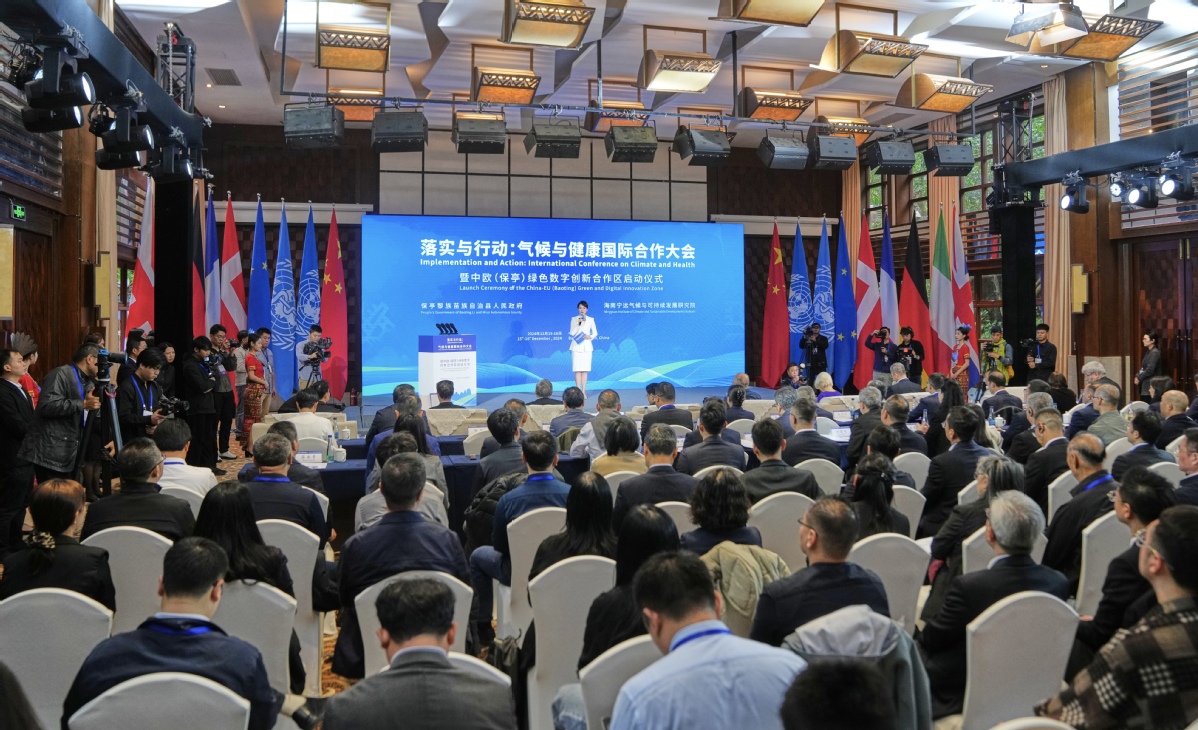Baoting eyes green, low-carbon energy transformation
chinadaily.com.cn, December 18, 2024 Adjust font size:

Baoting Li and Miao autonomous county in Hainan province is leading the charge to achieve China's dual carbon objectives, aiming for peak carbon emissions by 2028 and carbon neutrality by 2040.
The goal, which involves developing a green, low-carbon industrial system covering the health, tourism, culture and agriculture sectors, was raised at the launch ceremony of the China-Europe (Baoting) Green and Digital Innovation Zone, during the Implementing and Action: International Conference on Climate and Health held in the county on Sunday.
During the launch ceremony, Zheng Xinli, former deputy director of the Policy Research Office of the Communist Party of China Central Committee, described the zone as a collaborative effort across nations, levels, and sectors, aiming to establish a platform for open climate and sustainable development at the Hainan Free Trade Port.
The county plans to integrate its carbon-neutral product labels into the China-Europe carbon-neutral standard mutual recognition and exchange mechanism.
Zheng emphasized the importance of creating practical carbon neutrality roadmaps and suggested focusing on energy, transportation, construction and the circular economy to achieve traceable carbon footprints and foster innovative carbon management models for China-Europe cooperation.
Furthermore, Zheng proposed exploring green tax mechanisms to steer industries toward greener, digital transformations. This includes the development of assets like carbon credits and data, alongside innovative approaches to carbon and digital finance, fostering sustainable fiscal growth and establishing a new revenue model in the county.
Achim Steiner, United Nations Development Programme administrator, highlighted the goal to transform Baoting county into a carbon-neutral demonstration zone by deploying climate resilient solutions and developing climate-smart regulations and standards.
"The project seeks to advance climate action and sustainable development at the local level and exemplifies a green development and resilience-building model that can serve as a blueprint for small island developing states and beyond," he said.
Xie Zhenhua, China's first special envoy for climate change, emphasized the active promotion of innovative models for climate and sustainable development in Baoting. He underlined the push for green and low-carbon energy transformation, focusing on developing the new energy industry in Baoting and the Hainan Free Trade Port. These efforts aim to drive high-quality development, support renewable energy initiatives and advance carbon footprint standards between China and Europe, fostering green economic cooperation with technical support.
Feng Fei, secretary of Hainan's CPC Provincial Committee, highlighted the significance of the zone on leveraging the free trade port's policies and green initiatives to support national carbon strategies and global climate change efforts.
"Hainan is committed to ensuring the success of this landmark project, aiming for concrete and impactful outcomes," he said.
China has set a national target of reaching peak carbon emissions by 2030 and carbon neutrality by 2060.